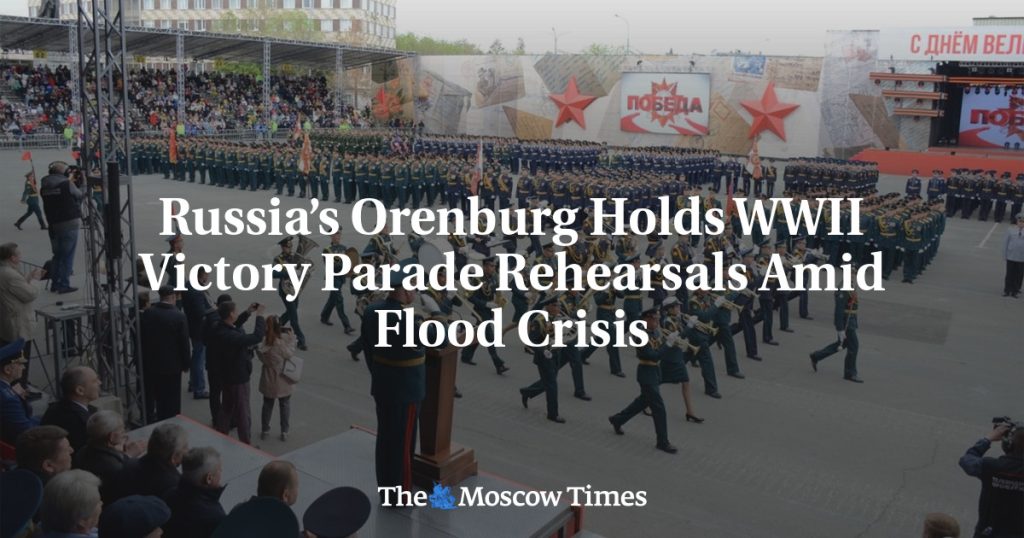Rehearsals for the annual Victory Day parade in Orenburg, Russia, have started despite devastating floods that have submerged thousands of homes and forced residents to evacuate. The parade, dedicated to the 79th anniversary of the victory in the Great Patriotic War, marks Russia’s most important public holiday each year on May 9. Orenburg is just beginning to recover from some of the worst flooding seen in almost a century, with at least 12,000 houses flooded at the peak of the deluge.
While water levels in Orenburg are receding, the Ural River’s tributaries of Ilik and Sakmara pose a threat to some neighborhoods in the city and nearby settlements. Despite this, the Orenburg mayor’s office has stated that the Victory Day parade rehearsals will proceed as planned. The rehearsals will include military hardware and veterans of Russia’s full-scale invasion of Ukraine. More than 700 servicemen, many of whom participated in the special military operation in Ukraine, are expected to participate in the festivities, with new air defense systems accompanying the mechanized column for the first time this year.
As of early Tuesday, floods in the Orenburg region have not resulted in any reported deaths by authorities; however, independent journalists have identified at least five flood victims in the cities of Orsk and Orenburg. The devastating floods have left 5,510 homes in Orenburg underwater, posing a significant challenge to the region. Despite this, authorities are moving forward with the planned Victory Day parade festivities, prioritizing the military commemoration despite the ongoing crisis.
The decision to continue with the Victory Day parade rehearsals amid the catastrophic floods has sparked controversy and criticism from some. While the parade is a significant event in Russia, some argue that proceeding with the rehearsals while thousands are struggling with severe flooding is inappropriate and insensitive. The juxtaposition of military celebrations against a backdrop of natural disaster highlights the complexities and conflicts that can arise during times of crisis.
The determination to carry on with the Victory Day parade rehearsals despite the devastating floods may be seen as a testament to Russia’s commitment to honoring its military history. The parade serves as a symbol of remembrance and respect for the sacrifices made during times of war. However, the decision also raises questions about the government’s priorities and its response to natural disasters, with some questioning whether resources should be redirected to aid flood victims rather than preparing for a military parade.
In conclusion, the situation in Orenburg highlights the delicate balance between commemorating historical events and responding to present-day emergencies. While the decision to proceed with the Victory Day parade rehearsals may reflect a desire to uphold traditions and honor the country’s military heritage, it has also sparked debate and criticism. The intersection of military celebrations and natural disaster recovery efforts in Orenburg underscores the complexities of navigating multiple challenges simultaneously, and raises important questions about priorities and responses during times of crisis.


